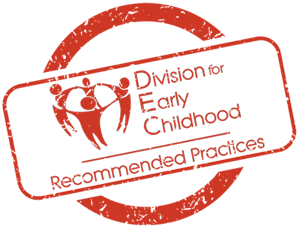Early Childhood Behavior Management: Developing and Teaching Rules
 This module, a DEC-recommended resource, includes information on how to create developmentally appropriate behavior rules for early childhood classrooms so that they link to a given school's behavior expectations. The importance of communication with families about rules and expected behaviors is also stressed (est. completion time: 2 hours).
This module, a DEC-recommended resource, includes information on how to create developmentally appropriate behavior rules for early childhood classrooms so that they link to a given school's behavior expectations. The importance of communication with families about rules and expected behaviors is also stressed (est. completion time: 2 hours).
Earn the Professional Development Certificate for this module.
Work through the sections of this module in the order presented in the STAR graphic above.
Related to this module
Copyright 2025 Vanderbilt University. All rights reserved.



